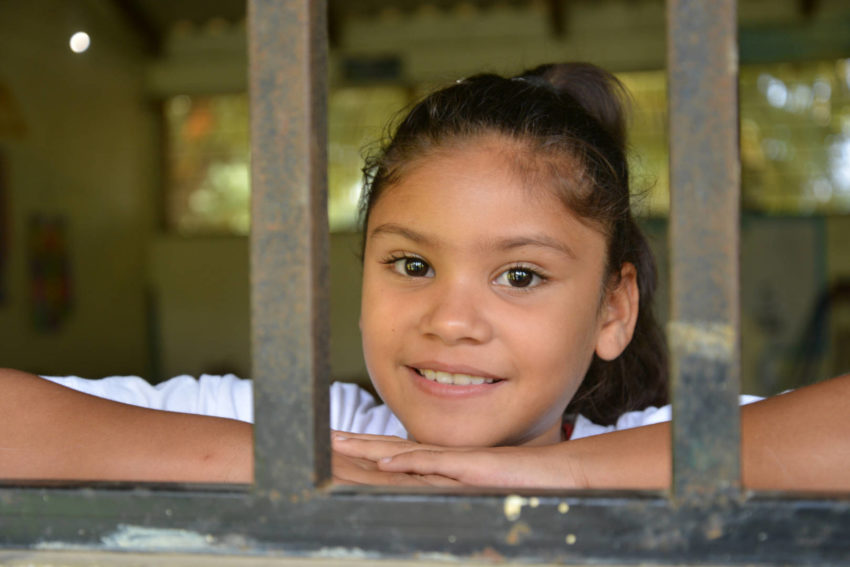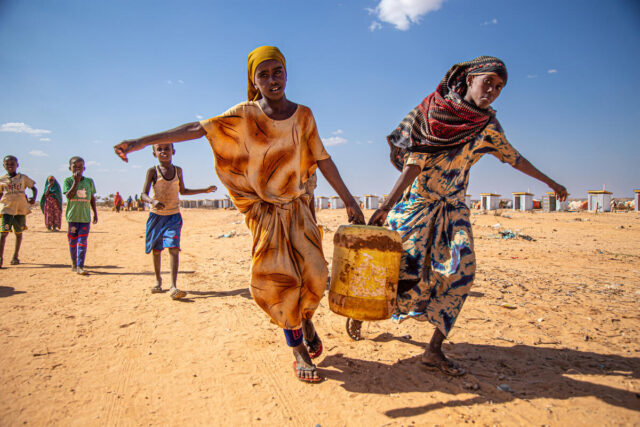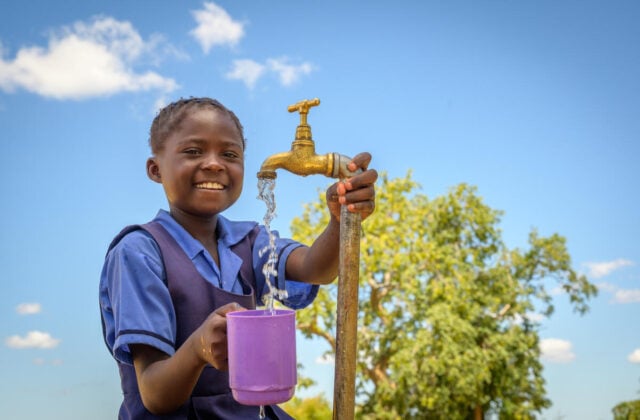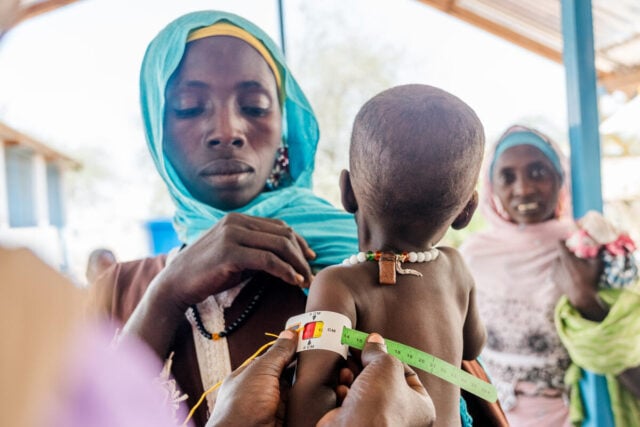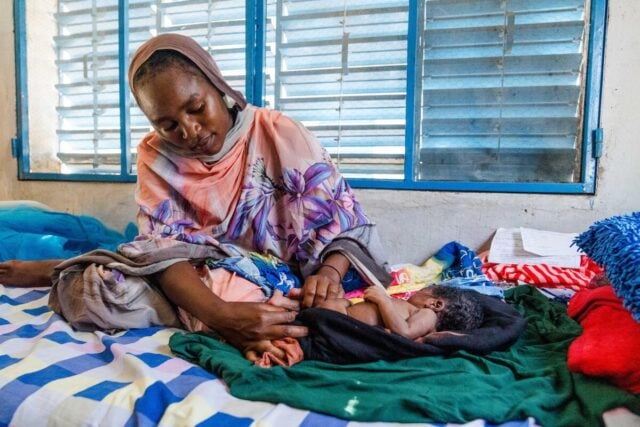Listen. It’s one of the most difficult things to do as a parent — especially when, “Listen to me, mom!” is bellowed at full volume from behind a just-slammed bedroom door.
As parents, it’s much easier to talk than to listen.
But listening is what our children need us to do.
Every year on November 20, Universal Children’s Day reminds us to listen.
Established in 1954, the day is observed around the world to promote international bonds, awareness among children worldwide, and to improve children’s welfare.
Last week, I saw listening in action.
I was in Honduras, watching as Juana Martinez zoomed down a dirt road on her all-terrain vehicle, her cowboy hat fastened securely on her head with a chord below her chin.
Juana Martinez is one of the women ensuring that 600 community members show up daily to dig a 26-mile pipeline that will encase pipes to carry clean water to 3,000 people in the area — some receiving it for the first time.
Although Juana may look like an experienced project manager, this is the first time she’s held such a position.
“My training is coming from this experience,” she says. “We have so many people involved in this project.”
It’s a hallmark of World Vision’s work to involve everyone in decision making — men, women, girls, and boys.
“We always involve women and children,” says Noe Rodriguez, who manages World Vision’s work in water, sanitation, and hygiene in Jamastran, Honduras.
“There are a ton of women in leadership in this community,” he says.
But not just women lead, says Noe. World Vision involves children and teenagers as well.
“People are not used to children participating, but we always have them involved,” he says. “Children and adults see problems differently.”
And it’s true.
Children see problems from a point of view that adults have long forgotten.
Javier Mayorga, who runs World Vision’s water programs in Honduras, may have his master’s degree in watershed management from the University of Arizona, but he knows that solution-oriented programs begin by listening to children.
Javier and his team asked the children of Jamastran a series of questions before the water project began:
- What projects would you like to do in the community?
- Why would you like to have drinking water in your home?
- Why do you arrive late to your classes?
- How much time do you invest in taking water from the river?
- What is your greatest fear in bringing water from the river?
- What health problems come with drinking water from the river?
The children’s answers were enlightening — and answers that could only come from children. They told Javier that they really wanted working toilets at school — how some of the girls wouldn’t even use the bathroom all day, waiting until they got home from school. They talked about how they hate to bathe in a dirty river and how collecting water makes them late for school. They spoke of their fear of the animals who drink water at the river and their fear of the river itself — how they could drown. And finally, they told Javier about the health problems caused by dirty water — diarrhea and skin rashes.
The children’s answers were considered seriously by World Vision program officers. The water issues in Jamastran could only be solved if the needs of the children were taken into account.
Two hours away in Tegucigalpa, Carla Isaula, a fifth-grade teacher, is learning to listen.
Carla attends a “Parenting with Tenderness” class at a World Vision project in one of Tegucigalpa’s most dangerous neighborhoods. She recounts to 15 fellow teachers and World Vision’s Christian discipleship trainer, Luatany Nolasco, a troubling story: how one of her students used to beat his ears until they bled.
“I was scared,” she says. Through Parenting with Tenderness training, Carla learned the solution.
She had to listen. She had to learn to empathize with the little boy.
“Now we give him love,” she says. “When he beats his ears, we come close and speak tenderly. Now he will let people come into his space. Before he would jump on you.”
The training has changed Carla’s outlook on life.
“I used to say, ‘Thank you God that he didn’t come today.’ Now I know that this work is what God gave us to do.” Now when the little boy doesn’t attend class, Carla worries for him and misses him.
She has learned to listen.
Carla uses the lessons she’s learning through Parenting with Tenderness not only to teach children in a new way but to teach their parents these lessons as well.
At the end of our time together, Carla looked me in the eye. “Thank you for doing this project,” she told me. “This is a very poor country. You are bringing hope to the children. They are less aggressive. You can see where they live. This is about love and how we reach them.”
I couldn’t take her thanks. The thanks go to our World Vision staff in this country and others who risk so much to work in the hardest of places. Thanks go to the many donors who selflessly fund these life-changing projects. And thanks go to God who makes it possible to live out Jesus’ wish to “Let the little children come to me.” He needed them near so that he could listen.
Universal Children’s Day may be recognized on November 20, but around the world, World Vision recognizes every day as an opportunity to recognize the contribution of children.
Their voices ring out, loud and strong, as staff design programs to protect and educate them, provide clean water, improve health, and develop spiritual nurture.
It’s all based on something my mom told me when I was young — perhaps as I was seething behind a just-slammed bedroom door: “God gave you two ears and one mouth for a reason.”
Why? To listen.
